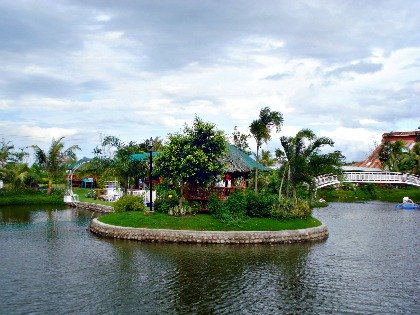Sustainable Tourism Program Pushed by Eco-Tourism Expert
International School of Sustainable Tourism (ISST) President Mina Gabor called on key tourism players in the region to consider pushing for eco-tourism which is currently very viable in Asia and Pacific including the Philippines.
Gabor, a former tourism secretary, in her talk during the Cordillera Regional Tourism Conference, disclosed that in 2012, international tourist arrivals has put Asia and the Pacific at the top of the world in terms of growth and for the Philippines alone, it breached the four million mark for foreign tourist arrivals.
Out of the four million international tourists in 2012, 22 percent or around 800,000 were nature-based eco-tourism travelers. Such number according to Gabor will continue to grow as the country has vast potential for sustainable eco-tourism development.
Gabor pointed out that the country boasts of 7,107 islands; ranks fifth in the world and second in Asia in terms of endemic animals; ranks 25th in the world and eighth in Asia among plant-rich nations; boasts of 17,500 kilometers of coastline and 30 million hectares of terrestrial and wetland ecosystems; forms part of the coral triangle together with Indonesia and Malaysia and boasts of 110 diverse dialects which are very advantageous for eco-tourism.

Sustainable Tourism Program
As for target markets, Gabor disclosed that Asia is first and foremost intra-regional wherein travel is not a luxury but a necessity as survey among affluent Asians shows that 73 percent of them have passion for travel.
For Asian ecologists, they travel in large groups, demand higher degree of comfort than the Western eco-tourists, and more interested in eco-tour day trips while lodging and dining in comfortable resorts.
Gabor advised stakeholders that for a sustainable community eco-tourism, they have to be continuously creative using the local cultures, cuisine and out of the track events as tourists nowadays are always looking for bargains, significant event and new important services.
She also pointed out the need for connectivity (utilizing the latest technologies) and promoting outdoor options and freebies and with mobile booking as the latest trend in tourism is more about developing instant, personalized and bookable services.
In developing an eco-tourism area or event, Gabor said that ecotourism is responsible travel to natural areas that will encourage environment education, appreciation and conservation in order to sustain and improve the lives of the local.
She also shared that experts in the eco-tourism field agree that a common cause of eco-tourism disaster is that, “Too much happen too fast” (rapid and over development) in an eco-tourism destination.
Gabor also urged all eco-tourism stakeholders to help preserve the environment by choosing destinations that are not overcrowded or overdeveloped; select responsible tour operators and guides who are aware of environmental concerns, seek out responsible environmentally-friendly accommodations; and follow all advisories, rules and regulations regarding protected areas, water sources or wildlife habitats, among others. (JDP/Carlito C. Dar-PIA CAR)


